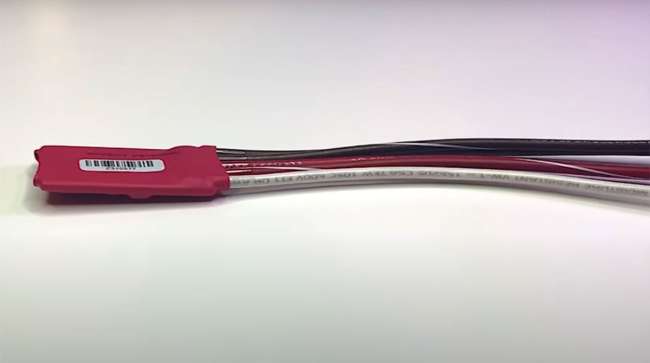Senior Reporter
FMCSA OKs Carrier Exemptions for Pulsating Brake Light Tech

[Stay on top of transportation news: Get TTNews in your inbox.]
In recent months, federal trucking regulators have granted several motor carriers up to five-year exemptions to use a pulsating brake light technology that the agency rejected in late 2022 for not being proven as safe as traditional steady burning brake lights.
However, since May, the Federal Motor Carrier Safety Administration has given the OK for at least seven motor carriers to deploy the Intellistop braking system for up to five years, but with restrictions on the percentage of a fleet’s trucks that can deploy the technology.
The Intellistop module is designed to pulse the required rear clearance, identification and brake lamps from a lower-level to a higher-level lighting intensity four times in 2 seconds when the brakes are applied, and then return the lights to a steady-burning state while the brakes remain engaged.
So far, FMCSA has granted exemptions to deploy the Intellistop module to Groendyke Transport, Gemini Motor Transport, Brent Higgins Trucking, DJS Fundraising, Meiborg Brothers, JM Bozeman and Encore Building Products. A request by another company, PolyTech Plastic Molding (which now goes by Arcane Industries), is still under review.
Intellistop owner Michelle Hanby said the aim of using the pulsating light system is to work in tandem with steady-burning brake lights that are currently required by federal regulation. Hanby believes the Intellistop system could help reduce the number of rear crashes into trucks, which regulators say account for about 30% of all accidents.
Hanby said she is pleased that the agency is allowing the exemptions but that progress has been and remains slow.
“One of the tank providers that had been doing our product very quietly for a couple of years told me that his company has seen a 60% reduction in rear collisions,” Hanby said. “Those are the kind of things that keep me fired up for the fight.”

Hanby
She estimates that about 30 companies are using Intellistop but have not requested FMCSA exemptions.
“It’s not illegal to do it,” Hanby said. “Their business and safety is important to them. They’re going to do what it takes to stay safer.”
At the time of the late 2022 exemption denial, both FMCSA and the National Highway Traffic Safety Administration said they had considered alternative rear-signaling systems to reduce the incidence of rear-end crashes.
“While the technology at issue may have promise, FMCSA believes a blanket exemption for all motor carriers to use Intellistop’s product is not supported by the currently available data, is not an appropriate approach, and lacks the necessary monitoring controls to ensure highway safety,” FMCSA said. “While these efforts concluded that improvements could be realized through certain rear-lighting systems that flash, neither the FMCSA regulations nor the federal motor vehicle safety standards currently permit the use of pulsating, brake-activated lamps on the rear of commercial motor vehicles.”
In its request for an exemption, Intellistop noted that FMCSA has previously granted similar, but not identical, temporary exemptions to National Tank Truck Carriers, Grote Industries and Groendyke.
Want more news? Listen to today's daily briefing above or go here for more info
In explaining the reason for granting the recent exemptions, the agency said it would have been difficult to monitor the results if it gave an exemption to the manufacturer. While the agency determined that the scope of the exemption Intellistop sought was too broad to ensure that an equivalent level of safety would be achieved, it said that individual motor carrier applications for exemption may be more closely aligned with FMCSA authorities and would allow the agency to more closely monitor the system’s use.
After the denial, in 2023, Hanby filed a request for review with the U.S. Court of Appeals for the District of Columbia. However, the court did not agree with Intellistop’s allegations that the agency had acted arbitrarily.




